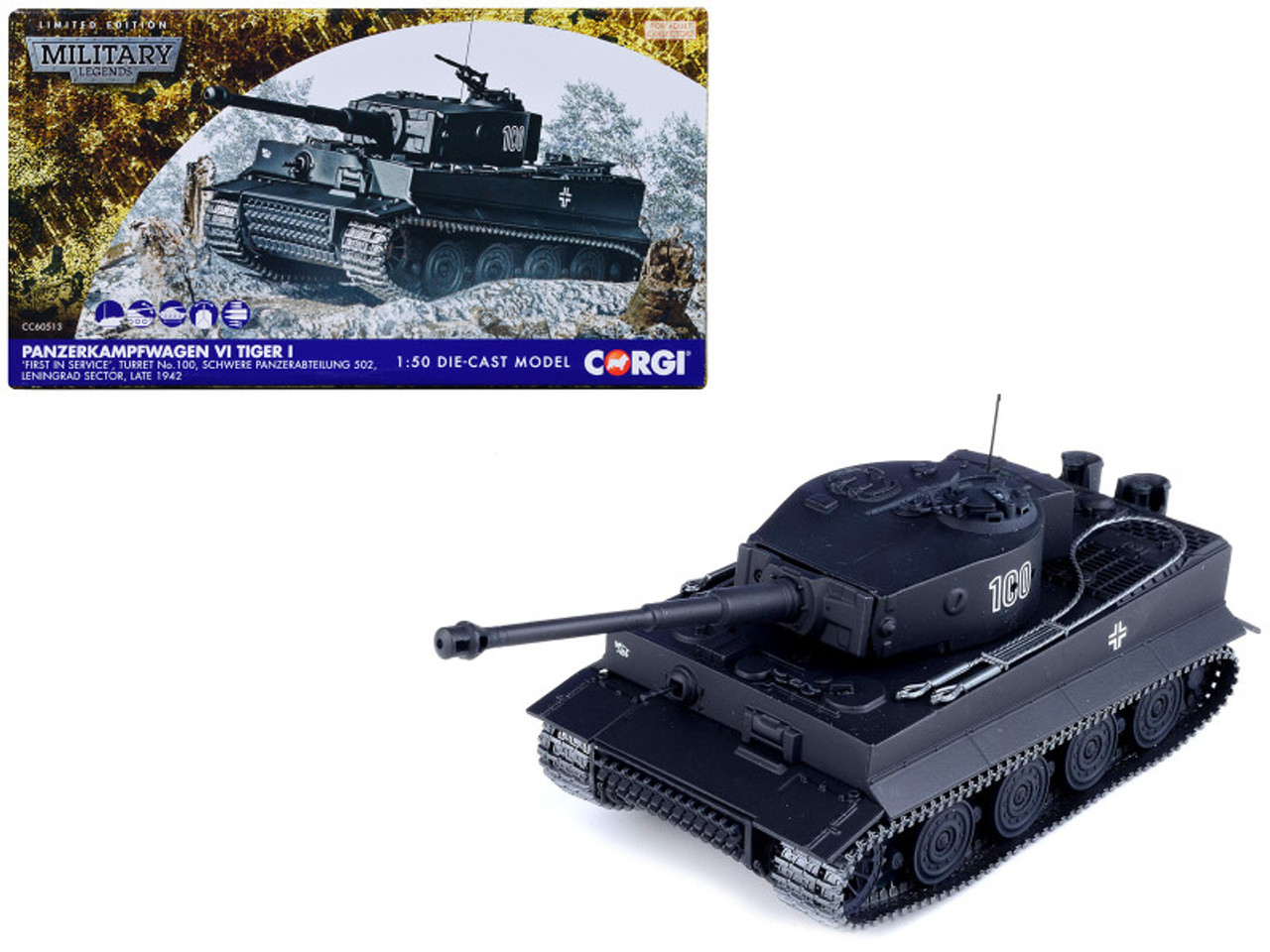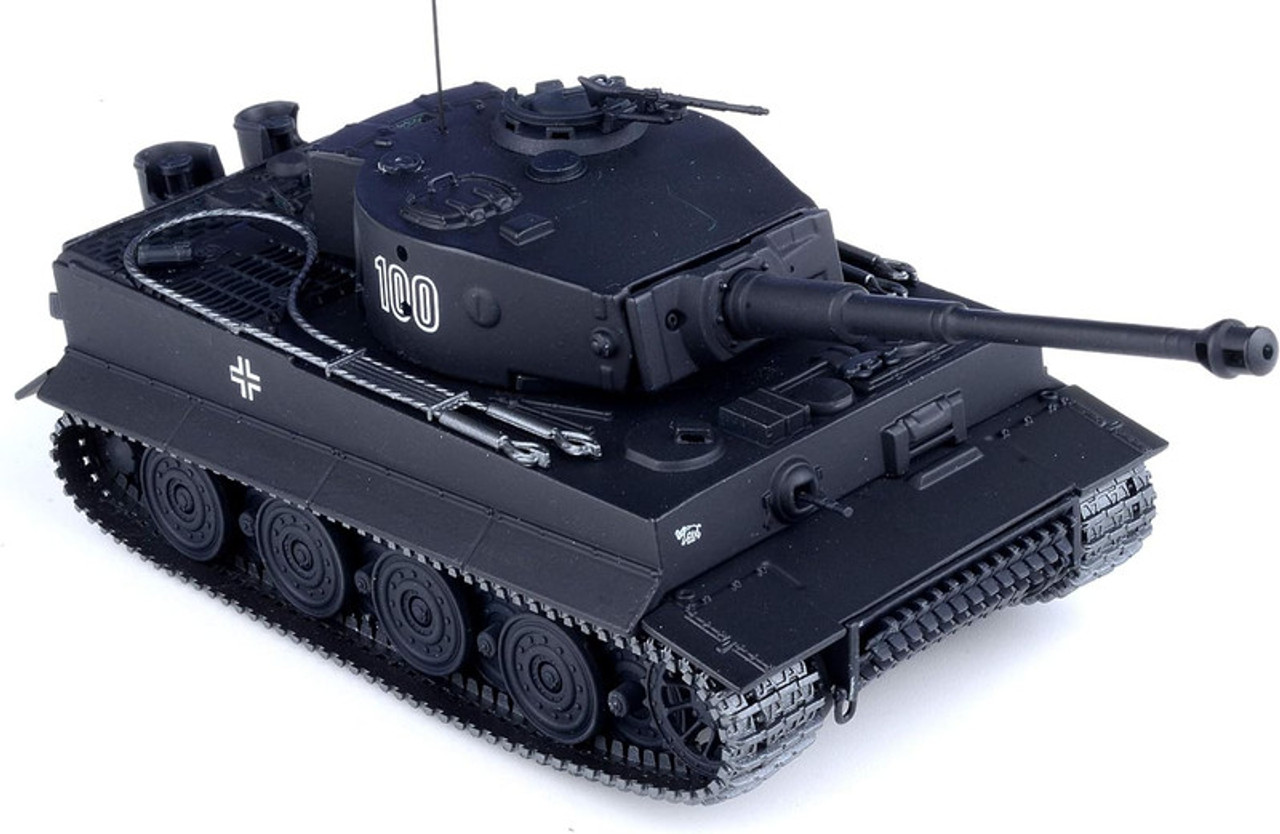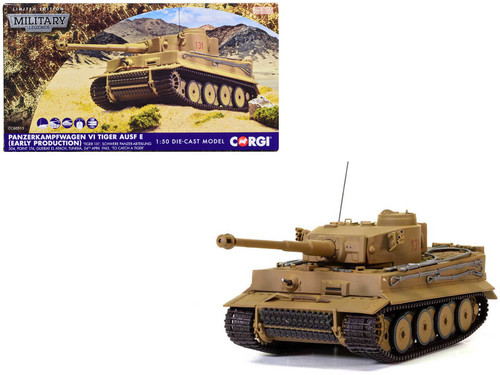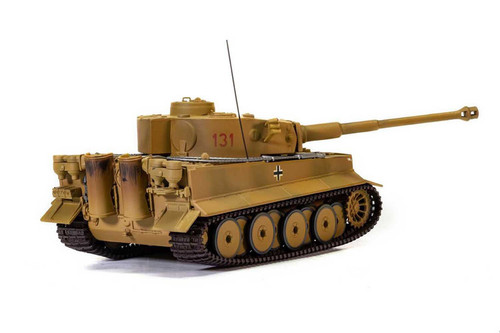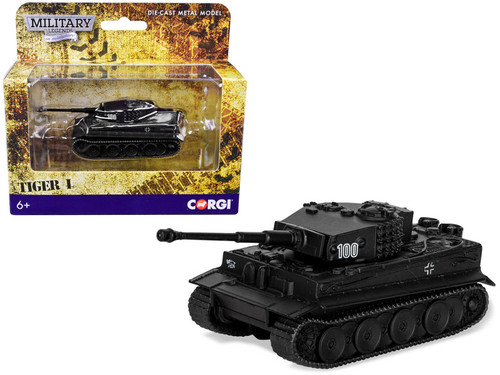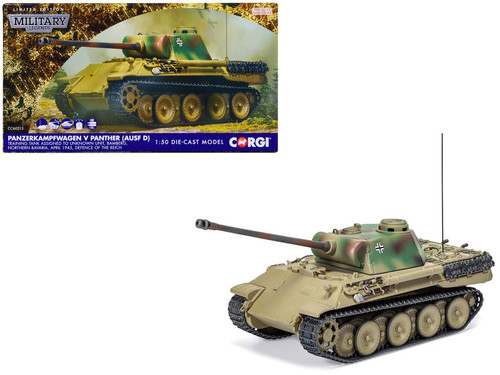Product Description
- Brand new 1/50 scale diecast model of Panzerkampfwagen VI Tiger I Tank "First in Service, Turret No. 100, Schwere Panzerabteilung 502, Leningrad Sector" (1942) German Army "Military Legends" Series die cast model by Corgi.
- Limited edition.
- Brand new box.
- Detailed exterior.
- True-to-scale detail.
- Officially licensed product.
- Manufacturer's original unopened packaging.
- Dimensions approximately L-6.75, W-3, H-2 inches.
- Rotating turret and elevating cannon for dynamic display options.
- Diecast metal and plastic construction for durability and a heavy, realistic feel.
- Realistic panel lines, antennas, access panels, and surface details for an authentic representation of the real-life tank.
- HISTORY ASPECTS:
The Henschel Sd.Kfz.181, commonly known as the Tiger I, made its first operational appearance in the harsh conditions of the Eastern Front during World War II. In late 1942, German Army sPzAbt 502 deployed the Tiger I with the tank numbered #100 to the Leningrad Sector. This marked a significant moment in the Tiger I's service history, as it showcased its formidable firepower and armor capabilities in combat against Soviet forces.
The Tiger I played a crucial role in various conflicts on the Eastern Front, contributing to the German offensive on the Leningrad Sector and other key battles. With its 88mm gun and thick armor, the Tiger I gained a fearsome reputation, earning its place as one of the most powerful tanks of its time. Its appearance on the Eastern Front was a response to the formidable Soviet tanks encountered by the German forces, and the Tiger I quickly became a symbol of German armored might.
This meticulously crafted 1:50 scale model faithfully captures the essence of the Tiger I's debut in the Eastern Front, featuring accurate details and markings that reflect its historical significance. Perfect for collectors and military history enthusiasts, this replica is a tribute to the iconic Tiger I and its role in shaping the armored warfare landscape during World War II.

